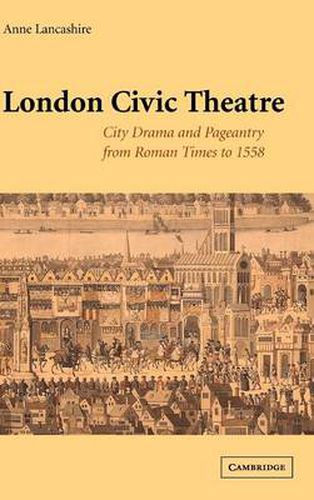Readings Newsletter
Become a Readings Member to make your shopping experience even easier.
Sign in or sign up for free!
You’re not far away from qualifying for FREE standard shipping within Australia
You’ve qualified for FREE standard shipping within Australia
The cart is loading…






Civic theatre - drama and pageantry sponsored by city and town governing bodies - is prominent in histories of early English provincial drama but has been largely ignored for pre-Elizabethan London. Anne Lancashire explodes the widely-held notion that significant London theatre arose only in the age of Shakespeare, when the first commercial playhouses were built there. She outlines the extent and types of early civic theatrical performance, specifically in London, from Roman times to Elizabeth I’s accession to the throne in 1558, focusing on Roman amphitheatre shows, medieval and early Tudor plays, mummings, royal entries, and other kinds of street pageantry. With evidence from a multitude of primary sources and extensive use of early chronicle histories, the book raises new questions about this urban, largely political theatre which provided an important foundation for the work of Shakespeare and his contemporaries.
$9.00 standard shipping within Australia
FREE standard shipping within Australia for orders over $100.00
Express & International shipping calculated at checkout
Civic theatre - drama and pageantry sponsored by city and town governing bodies - is prominent in histories of early English provincial drama but has been largely ignored for pre-Elizabethan London. Anne Lancashire explodes the widely-held notion that significant London theatre arose only in the age of Shakespeare, when the first commercial playhouses were built there. She outlines the extent and types of early civic theatrical performance, specifically in London, from Roman times to Elizabeth I’s accession to the throne in 1558, focusing on Roman amphitheatre shows, medieval and early Tudor plays, mummings, royal entries, and other kinds of street pageantry. With evidence from a multitude of primary sources and extensive use of early chronicle histories, the book raises new questions about this urban, largely political theatre which provided an important foundation for the work of Shakespeare and his contemporaries.